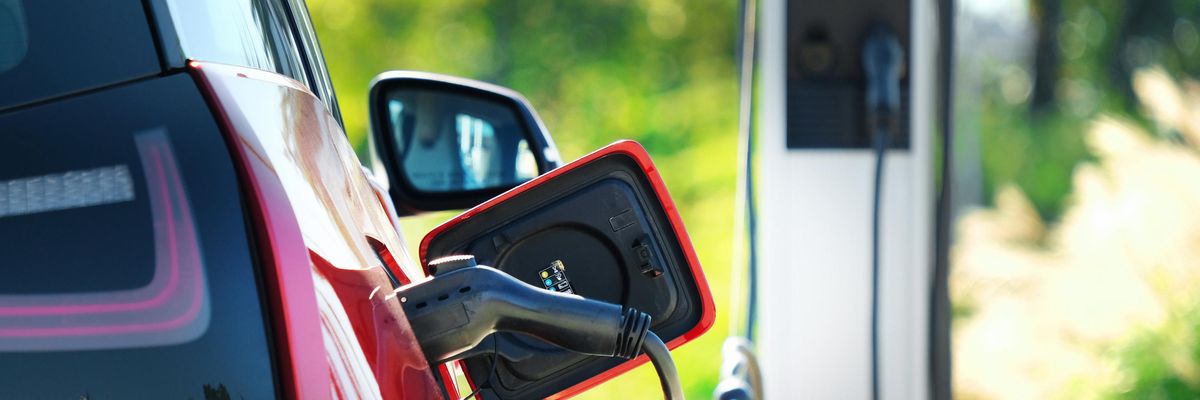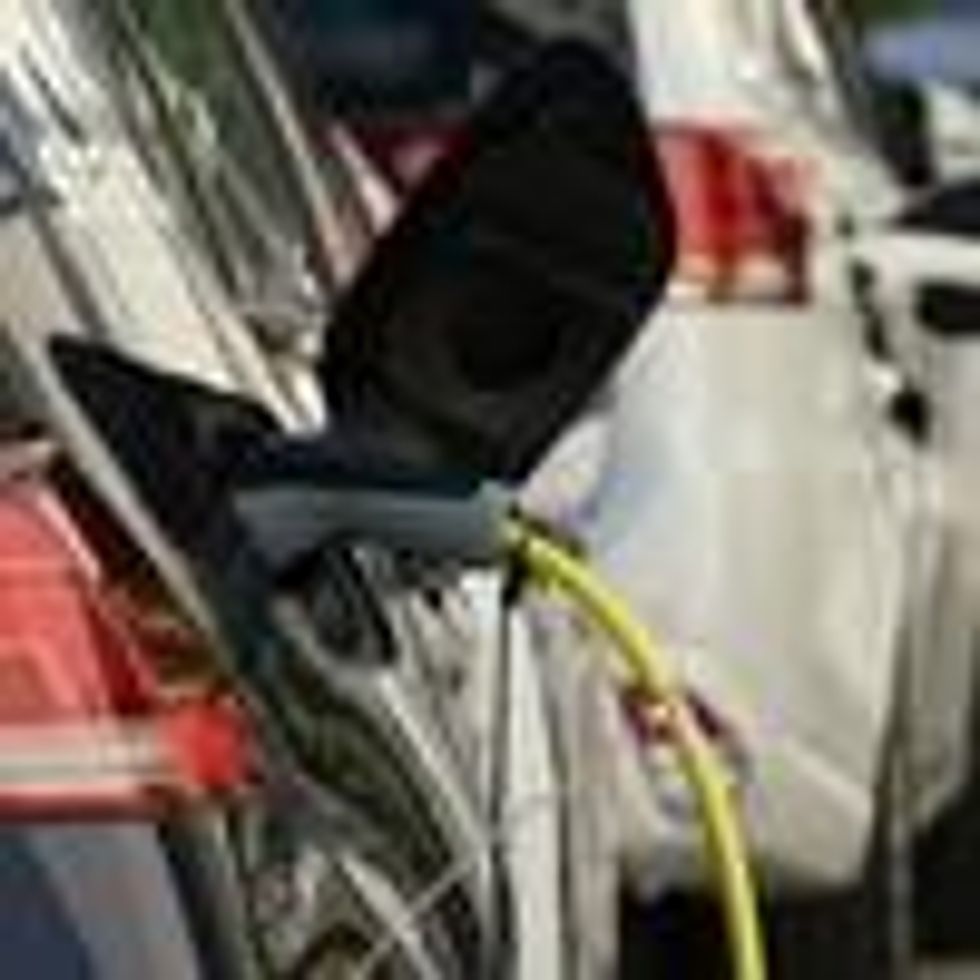A new report details how a nationwide transition to a zero-emission transportation sector and renewable electricity generation would bring $1.2 trillion in public health benefits to the United States over the next three decades.
"The shift to zero-emission transportation and electricity generation will save lives and generate massive health benefits across the United States."
"Zero-emission transportation is a win-win for public health," said Harold Wimmer, national president and CEO of the American Lung Association, which on Wednesday released the Zeroing in on Healthy Air report.
The publication imagines a scenario of a shift to full renewable electricity and 100% sales of zero-emission passenger vehicles by 2035 and medium- and heavy-duty trucks by 2040.
Wimmer lamented the "pollution hot spots" affecting U.S. communities nationwide and noted that "the transportation sector is the nation's biggest source of carbon pollution that drives climate change and associated public health harms."
"This is an urgent health issue for millions of people in the U.S.," he said.
The analysis states that more than 4 in 10 of all Americans live in communities suffering from heavy air pollution.
While communities everywhere would benefit from the proposed shifts, the transition would be a clear step toward environmental justice.
The 100 U.S. counties with the highest percent populations of people of color, according to the report, would reap about 13% of the cumulative health benefits of the green transition.
"The shift to zero-emission transportation and electricity generation will save lives and generate massive health benefits across the United States," said Wimmer, who called it "critical that we ensure these benefits are realized in the near term in communities most impacted by harmful pollution today."
Moving away from fuel combustion would set key pollutants plunging by 2050, the report finds. As one example, particle pollution--linked to an increased risk of heart disease and other adverse health impacts--is projected to drop by 61%. Greenhouse gases, meanwhile, would plummet by 93% over the time period.
Putting a monetary value on the changes, the report finds public health benefits of $1.2 trillion--a figure that includes 110,000 lives saved, as well as over 2.7 million asthma attacks avoided.
With the transition estimated to reduce 24 billion metric tons of greenhouse gases by 2050, the analysis states there would be $1.7 trillion in global climate benefits.
The report also offers a state-by-state look at the cumulative health benefits. Two states would see benefits that top $100 billion, with California at $169 billion at Texas $104 billion.
The top 10 metro areas that would get the biggest cumulative health benefits from the green shift include the Los Angeles-Long Beach, California area, which would see $95.5 in health benefits including 8,680 premature deaths avoided. The Dallas-Fort Worth area rounds out the top 10 list; that metro area in Texas would see $28 billion of health benefits including 2,530 premature deaths avoided.
A suite of recommendations at the federal, state, and local levels is also detailed.
While the bipartisan infrastructure law signed last year was "an important start," the report calls for far greater action at the federal level including policies to achieve the 100% zero-emission passenger cars and heavy-duty trucks goal from the report.
Related Content
'Speed Bump on the Road to Climate Catastrophe': Critics Warn Biden Car Emission Rules Not Enough
Andrea Germanos
All states are urged to adopt zero-emission vehicle standards, as 15 have already. They should additionally "invest in the fueling infrastructure needed to support the growing market, while also supporting the transition to noncombustion renewable power."
Like federal authorities, state-level policymakers are urged to "lead by example by converting public fleets to zero-emission vehicles."
Local policymakers must also take action such as making the renewable technology installation process easier for homeowners and businesses and coordinating with "local agencies to implement zero-emission mobility options for lower-income neighborhoods, including car share, bike share, on-demand transit, etc."
Alongside the report, the Lung Association released a petition calling on President Joe Biden to put in place "clear policies and investments in zero-emission technologies" to meet the energy transition.
As the petition puts it: "The time to act on zero-emissions is now."


